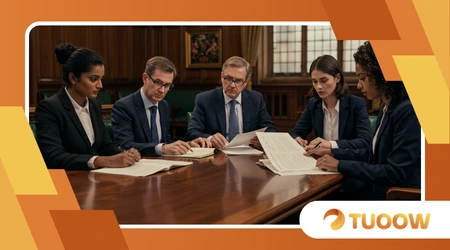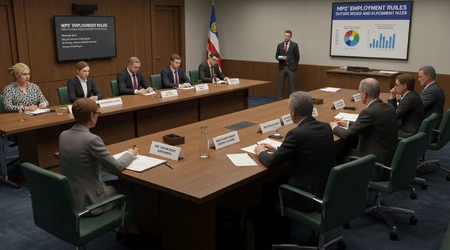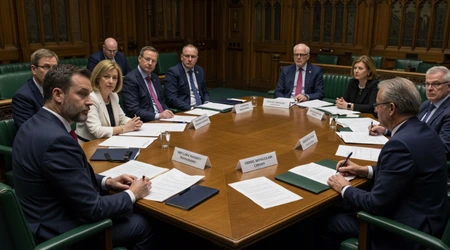MPs Launch Inquiry into Outside Interests: A Step Toward Restoring Public Trust

MPs launch inquiry into outside interests to scrutinize rules governing secondary employment, aiming to rebuild trust in Parliament.
The UK’s Committee on Standards, tasked with upholding ethical conduct, announced this probe on January 31, 2025, responding to growing public concern over MPs’ external roles.
From television presenting to corporate consulting, outside work has sparked debate about conflicts of interest and divided loyalties.
This inquiry, engaging figures like Commissioner Daniel Greenberg CB, seeks to balance MPs’ freedoms with accountability. Why does this matter?
Public trust in politics, battered by scandals, hinges on transparency. Let’s explore the inquiry’s scope, its implications, and what it means for Westminster’s future.
The inquiry arrives at a critical juncture. Recent controversies, including MPs earning significant sums from media roles or advisory positions, have fueled perceptions of self-interest.
Labour’s manifesto pledge to tighten rules underscores the urgency.
By examining the Code of Conduct, the Committee aims to address loopholes and redefine “reasonable limits” for outside work.
This article unpacks the inquiry’s objectives, historical context, and potential outcomes, offering a clear-eyed view of a complex issue. With public faith in politics at stake, the stakes couldn’t be higher.
The Inquiry’s Roots: Why Now?
Public skepticism about MPs’ priorities drives the inquiry. MPs launch inquiry into outside interests to address concerns that external roles undermine parliamentary duties.
Scandals, like the 2021 Owen Paterson case, exposed lax rules on paid lobbying.
The Committee on Standards, chaired by Chris Bryant MP, seeks to prevent such breaches. An evidence session with Lucy Powell MP on January 14, 2025, highlighted the need for reform.
The inquiry will assess whether current regulations align with public expectations.
Historical missteps inform this effort. The 2009 expenses scandal and subsequent reforms tightened financial transparency but left gaps in regulating second jobs.
For instance, MPs like Sir Ed Davey, who earned £78,000 annually as a consultant, faced scrutiny post-Paterson.
The inquiry questions whether such roles distract from constituency work. Public trust, already fragile, demands clarity on MPs’ commitments.
The Committee’s report on Bob Stewart’s conduct, released in 2025, further underscores the need for robust rules.
++ England Prepares for Pivotal Local Elections That Could Reshape Party Politics
Pressure for change isn’t new. The 2018 Committee on Standards in Public Life report urged banning MPs from roles like parliamentary consultants.
Yet, implementation lagged, eroding confidence. MPs launch inquiry into outside interests to finally act on these recommendations.
Labour’s recent ban on MPs advising on public policy signals momentum.
The inquiry’s timing reflects a broader push to restore integrity in politics, with public opinion as a powerful catalyst.

What’s at Stake: Transparency vs. Flexibility
The inquiry grapples with a core tension: transparency versus MPs’ freedom to work outside Parliament.
MPs launch inquiry into outside interests to explore whether stricter rules risk alienating talent. MPs argue external roles bring real-world expertise.
A doctor-MP maintaining medical practice, for example, enriches health policy debates. But when does expertise become a conflict?
The inquiry will evaluate if paid roles compromise impartiality.
Data highlights the issue’s scale. In 2022, 13.5% of MPs’ financial interest registrations were submitted late, per the Parliamentary Commissioner’s Annual Report.
This suggests compliance gaps. The Register of Members’ Financial Interests, while public, lacks user-friendliness.
Also read: Publication of Foreign Criminals Awaiting Deportation Sparks Political Debate
The inquiry may propose digitizing records, as Transparency International UK advocated in 2021.
Such reforms could make MPs’ earnings, like £300+ from a single source, instantly accessible.
| Year | Late Registrations (%) | Total Inquiries | Referred to Committee |
|---|---|---|---|
| 2021-22 | 13.5% | 41 | 12 |
| 2022-23 | 13.5% | 38 | 10 |
Conflicts of interest aren’t hypothetical. Imagine an MP advising a tech firm while debating data privacy laws can they remain unbiased?
The inquiry will probe such scenarios. MPs launch inquiry into outside interests to ensure contracts explicitly bar lobbying, as recommended in 2022.
Without clear boundaries, public cynicism grows. The Committee’s challenge is crafting rules that preserve flexibility while closing loopholes.
Balancing these priorities is tricky. Overly restrictive rules might deter capable candidates, narrowing Parliament’s diversity.
A blanket ban on second jobs, as Labour’s Keir Starmer suggested, could exclude professionals like lawyers needing to maintain qualifications.
The inquiry must weigh these trade-offs. MPs launch inquiry into outside interests to redefine “reasonable limits,” ensuring MPs prioritize constituents without stifling their broader contributions.
Public Trust: The Heart of the Matter
Restoring faith in politics is the inquiry’s ultimate goal. MPs launch inquiry into outside interests to address perceptions that MPs prioritize personal gain.
Polls show trust in politicians at historic lows only 14% of Britons trust MPs to tell the truth, per a 2023 YouGov survey.
High-profile cases, like MPs hosting TV shows, amplify distrust. The inquiry will explore whether media roles distract from parliamentary duties.
The analogy is clear: MPs are like chefs juggling multiple dishes. If they focus on a side gig, the main course constituency work suffers.
The public expects MPs to serve them, not corporate boards. The inquiry’s evidence session with Daniel Greenberg on March 18, 2025, will clarify enforcement gaps.
Stricter sanctions for breaches, like late registrations, could deter misconduct.
History offers lessons. The 1994 Nolan Principles, emphasizing integrity and accountability, reshaped standards post-scandal.
Yet, their application remains inconsistent. MPs launch inquiry into outside interests to align rules with these principles.
For example, requiring MPs to publish external contracts could expose conflicts early.
The inquiry’s success hinges on translating principles into enforceable policies that resonate with a skeptical public.
Engagement is key. The Committee’s consultation with academics and MPs ensures diverse perspectives. But will these voices shape meaningful change?
Public submissions, open until March 2025, could amplify grassroots concerns. The inquiry must avoid cosmetic fixes, like minor tweaks to registration deadlines.
Instead, it should tackle systemic issues, such as MPs’ ability to influence legislation for paying clients.
Potential Outcomes: A New Code of Conduct?
The inquiry could reshape Westminster’s ethical framework.
MPs launch inquiry into outside interests to consider a qualified ban on certain roles. Labour’s manifesto supports limiting second jobs, except for professionals like doctors.
The Committee may propose banning high-risk roles, like political consulting, while allowing low-risk ones, like writing books.
This nuanced approach could balance accountability with practicality.
Past reforms offer a blueprint. The 2022 Code of Conduct tightened lobbying rules, barring MPs from initiating proceedings for paying clients.
The inquiry might extend this, prohibiting participation in such proceedings entirely. For instance, an MP paid by an energy firm couldn’t join debates on renewable subsidies.
This would align with Transparency International’s call for clearer boundaries.
Enforcement is critical. The Parliamentary Commissioner currently handles minor breaches, like late registrations, with apologies.
Serious cases go to the Committee, but sanctions vary. The inquiry could standardize penalties, ensuring consistency.
A public dashboard tracking MPs’ compliance, updated every six weeks, might enhance accountability. The Committee’s 2024 review praised the system’s “logic,” but urged simplification.
Change won’t come easily. MPs must approve any new rules, and resistance is likely. Those benefiting from lucrative side gigs may push back.
The inquiry’s report, expected by late 2025, will test Parliament’s commitment to reform. Public pressure, amplified by media scrutiny, could tip the scales.
The inquiry’s legacy depends on delivering tangible, trust-building measures.

The Broader Context: Politics in a Cynical Age
This inquiry reflects a wider reckoning in UK politics. Scandals, from Partygate to expenses, have eroded public faith.
MPs launch inquiry into outside interests to signal that Parliament takes accountability seriously. But it’s not just about MPs.
Ministers, bound by the Ministerial Code, face similar scrutiny. The inquiry may influence how their external interests are regulated, ensuring consistency across government.
Global parallels abound. In Australia, MPs face strict disclosure rules, with real-time interest registers.
The UK could adopt similar systems, making MPs’ earnings instantly searchable.
The inquiry’s consultation with international experts could draw on these models. For example, a UK MP earning £50,000 from a media role would update a digital register within days, not weeks.
The media’s role is complex. MPs like Nadine Dorries, who hosted TV shows, argue such work boosts public engagement. Yet, critics see it as a distraction.
The inquiry might distinguish between media roles that inform like writing op-eds and those that entertain, like reality TV.
This distinction could guide future rules, ensuring MPs’ side hustles serve the public interest.
Ultimately, the inquiry is a litmus test. Can Parliament reform itself in an age of cynicism? The public watches closely, expecting more than promises.
By addressing conflicts head-on, the Committee could set a precedent for ethical governance. The road to trust is long, but this inquiry is a vital step.
Conclusion: A Chance for Renewal
The inquiry into MPs’ outside interests is more than a procedural exercise it’s a chance to rebuild trust. MPs launch inquiry into outside interests to confront a problem that’s festered too long.
From late registrations to high-profile scandals, the status quo has failed. The Committee’s work, engaging voices like Daniel Greenberg and Lucy Powell, signals intent.
But intent alone won’t suffice. The public demands action clear rules, tough sanctions, and transparency that leaves no room for doubt.
This moment feels pivotal. With trust in politics at a nadir, the inquiry could redefine how MPs balance their roles.
Will it deliver bold reforms or settle for half-measures?
The answer lies in the Committee’s courage and Parliament’s willingness to act.
As the inquiry unfolds, one thing is clear: the public is watching, and they expect MPs to put constituents first. Let’s hope Westminster rises to the challenge.
Frequently Asked Questions
Q: What prompted the inquiry into MPs’ outside interests?
A: Public concern over conflicts of interest and scandals like Owen Paterson’s 2021 lobbying case spurred the Committee to review rules.
Q: What changes might the inquiry propose?
A: It could ban high-risk roles like political consulting, mandate public contracts, and digitize the Register of Members’ Financial Interests.
Q: How can the public contribute to the inquiry?
A: Submissions are open until March 2025 via the Committee’s website, allowing citizens to share views on MPs’ external roles.
Q: Will the inquiry affect MPs’ media roles?
A: It may distinguish between informative media work, like op-eds, and entertainment roles, like TV presenting, with stricter rules for the latter.
